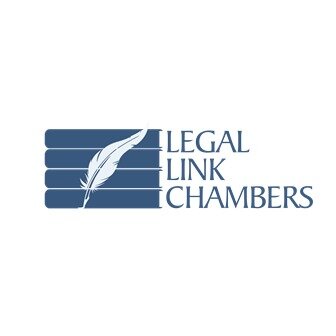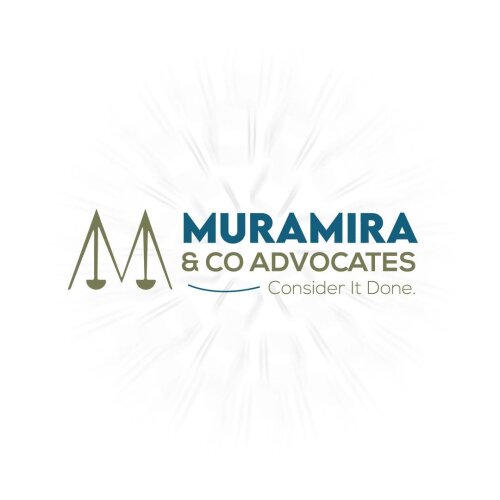Best Bankruptcy & Debt Lawyers in Kigali
Share your needs with us, get contacted by law firms.
Free. Takes 2 min.
List of the best lawyers in Kigali, Rwanda
About Bankruptcy & Debt Law in Kigali, Rwanda
Bankruptcy and debt law in Kigali, Rwanda, govern the processes and procedures that individuals and businesses must follow when they are unable to meet their financial obligations. The legal framework is designed to provide a structured method for rehabilitating debtors and ensuring fair treatment of creditors. Given Rwanda's dynamic economic environment, these laws aim to support a balance between creditor and debtor rights while facilitating economic stability and growth. Bankruptcy can serve as an important tool for financial reorganization, debt relief, and restoring creditors' confidence.
Why You May Need a Lawyer
Engaging a lawyer for issues related to bankruptcy and debt in Kigali can be crucial for several reasons. You may need legal assistance if you are facing overwhelming debt and are unsure of your legal options, such as whether to file for bankruptcy or negotiate with creditors. Additionally, if creditors are threatening legal action or if you are uncertain about the implications of bankruptcy, a lawyer can provide valuable guidance. Lawyers can also aid in protecting your rights and assets throughout the bankruptcy process and ensure compliance with relevant legal requirements.
Local Laws Overview
Rwanda's insolvency laws are encapsulated within the Companies Act, which provides the frameworks for liquidation and administration procedures. Key aspects include the distinction between voluntary and compulsory liquidation, the roles of liquidators and trustees, and specific duties that both creditors and debtors must observe. Bankruptcy proceedings in Rwanda aim to achieve equitable distribution of the debtor's assets and the potential rehabilitation of businesses or individuals. The law also emphasizes the importance of transparency and fairness throughout the entire process.
Frequently Asked Questions
What qualifies as bankruptcy in Kigali, Rwanda?
Bankruptcy involves a legal process where an individual or business declares the inability to pay outstanding debts. It generally requires filing a petition in court to initiate proceedings.
How does the bankruptcy process begin in Kigali?
The process typically starts with the filing of a bankruptcy petition by the debtor or creditors. This petition is submitted to the court to commence the formal proceedings.
What are the types of bankruptcy proceedings in Rwanda?
There are mainly two types: voluntary, initiated by the debtor, and involuntary, initiated by creditors. Each follows a different procedural path.
What are the consequences of filing for bankruptcy in Kigali?
Filing for bankruptcy can lead to asset liquidation to pay debts, but it also provides legal protection from creditors and a path for debt discharge or restructuring.
Can individuals and businesses in Rwanda file for bankruptcy?
Yes, both individuals and businesses can file for bankruptcy under the legal framework provided by the Companies Act and relevant insolvency laws.
What happens to my assets if I file for bankruptcy in Kigali?
Assets may be liquidated to repay creditors. Exemptions and protections might apply, depending on the case specifics and applicable laws.
How can a lawyer assist during bankruptcy proceedings?
A lawyer can help clarify legal options, represent you in court, negotiate with creditors, and ensure compliance with legal responsibilities.
What are alternative options to bankruptcy in Kigali?
Alternatives include negotiating a debt repayment plan with creditors, debt consolidation, or participating in an informal debt settlement process.
How long does bankruptcy last in Rwanda?
The duration can vary depending on the complexity of the case, the time taken to liquidate assets, and satisfy creditors, among other factors.
Can I keep any income or property during bankruptcy?
Certain assets and income may be exempt from liquidation, allowing you to retain them. This will depend on the specifics of your situation and local laws.
Additional Resources
If you need further assistance on bankruptcy and debt matters in Kigali, consider reaching out to the following resources:
- The Rwanda Development Board (RDB) for guidance on business-related insolvency.
- Local legal aid centers for pro bono legal advice.
- Consult the Insolvency Practitioners Association of Rwanda for professional insolvency services.
- Seek information from the Rwanda Bar Association for lawyer referrals.
Next Steps
If you are in need of legal assistance in bankruptcy and debt matters, start by consulting a qualified lawyer specializing in insolvency laws. Gather all pertinent financial documents, including debts, assets, and income details, to provide a complete picture to your legal advisor. Consider reaching out to recommended resources and legal aid organizations for additional support. It is important to act promptly to protect your rights and navigate the complexities of bankruptcy laws effectively.
Lawzana helps you find the best lawyers and law firms in Kigali through a curated and pre-screened list of qualified legal professionals. Our platform offers rankings and detailed profiles of attorneys and law firms, allowing you to compare based on practice areas, including Bankruptcy & Debt, experience, and client feedback.
Each profile includes a description of the firm's areas of practice, client reviews, team members and partners, year of establishment, spoken languages, office locations, contact information, social media presence, and any published articles or resources. Most firms on our platform speak English and are experienced in both local and international legal matters.
Get a quote from top-rated law firms in Kigali, Rwanda — quickly, securely, and without unnecessary hassle.
Disclaimer:
The information provided on this page is for general informational purposes only and does not constitute legal advice. While we strive to ensure the accuracy and relevance of the content, legal information may change over time, and interpretations of the law can vary. You should always consult with a qualified legal professional for advice specific to your situation.
We disclaim all liability for actions taken or not taken based on the content of this page. If you believe any information is incorrect or outdated, please contact us, and we will review and update it where appropriate.
Browse bankruptcy & debt law firms by service in Kigali, Rwanda
Kigali, Rwanda Attorneys in related practice areas.












